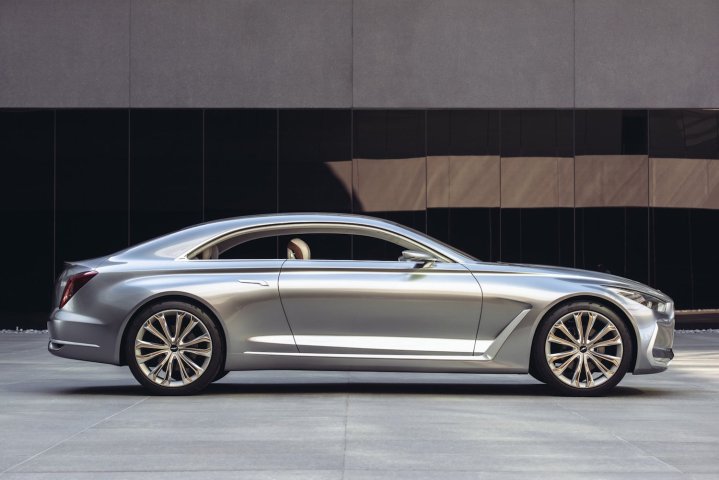
Tentatively called the G70 Coupe, the two-door could end up looking like a scaled-down version of the Vision G concept (pictured) that Hyundai presented last summer at the annual Pebble Beach Concours d’Elegance. The concept used Hyundai’s ubiquitous 5.0-liter Tau V8, but Car & Driver has learned the M4-punching variant will likely downsize and adopt a tweaked version of the twin-turbocharged 3.3-liter V6 engine that currently powers a handful of Hyundai and Kia models. The six can be massaged to deliver at least as much grunt as the 425-horsepower straight-six bolted under the M4’s hood.
Taking on BMW’s M division is easier said than done, but Hyundai believes it has what it takes. Notably, the South Korean car maker has appointed Albert Biermann, the former chief engineer of BMW M, to lead its performance-oriented N sub-brand. Biermann has first-hand knowledge of what makes a M-badged BMW spectacular to drive, and he also knows how to build a Hyundai that can surpass — or at least match — the M4 in terms of performance and driving dynamics.
Hyundai has not disclosed when the Genesis G70 Coupe will be presented to public.
What’s next?
Hyundai has previously shed insight into what the Genesis lineup will look like in 2020. The G70 Coupe will be joined by a G70 sedan designed to take on the BMW 3 Series, and a bigger sedan called G80 that will be positioned a notch below the range-topping G90. Two crossovers — likely designed to fight in the same segment as the BMW’s X3 and X5, respectively — will round out the lineup.
Editors' Recommendations
- Xiaomi’s Poco M4 Pro comes to Europe toting a MediaTek processor, sub-$300 price tag
- Hyundai upgrades its Veloster N with the best the aftermarket has to offer
- Genesis, Kia, and Hyundai top 2019 J.D. Power Initial Quality Study



